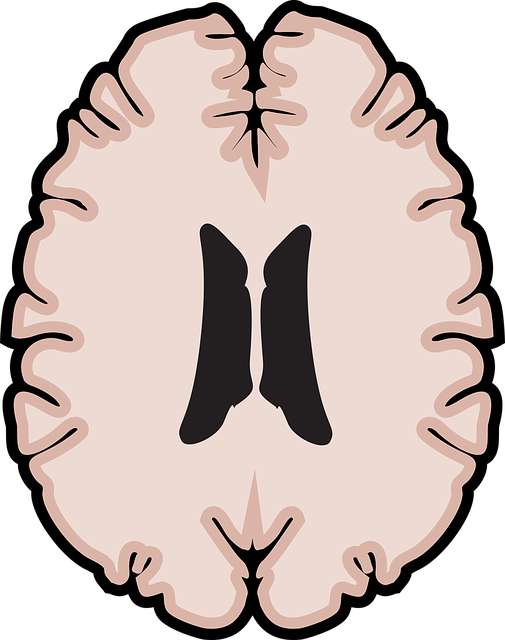Lone Tree German Speaking Therapy offers Mental Wellness Coaching Programs tailored to address modern challenges, combining specialized therapy with cultural sensitivity. Their approach includes stress management tools, emotional regulation strategies, and burnout prevention for healthcare providers. These programs are designed to be inclusive, merging theoretical knowledge with practical exercises, compassion cultivation, and resilience-building. Marketing focuses on targeting specific communities and highlighting the benefits of discrete, culturally sensitive German-speaking sessions. Success is measured through client feedback, KPIs, and continuous program reviews, ensuring effective coaching based on best practices.
In today’s fast-paced world, mental wellness coaching programs have emerged as vital tools for personal growth. This comprehensive guide explores the development of such programs, focusing on specific initiatives tailored for a unique demographic: Lone Tree German-speaking individuals. We delve into understanding the growing need for these services, designing effective therapy strategies, and creating robust coaching curricula. Additionally, we cover marketing tips and measuring success to ensure impactful improvements in mental health support within this community.
- Understanding the Need for Mental Wellness Coaching Programs
- Designing Effective Lone Tree German Speaking Therapy Initiatives
- Key Components of a Comprehensive Coaching Curriculum
- Implementing and Marketing Your Mental Health Coaching Services
- Measuring Success and Continuous Improvement Strategies
Understanding the Need for Mental Wellness Coaching Programs

In today’s fast-paced world, mental wellness is a cornerstone of overall health and well-being. The demands of modern life, from demanding careers to complex personal relationships, can take a significant toll on an individual’s mental fortitude. This is where Lone Tree German Speaking Therapy comes into play. Recognizing the growing need for support, many people are turning to Mental Wellness Coaching Programs as a proactive approach to maintaining and improving their psychological resilience.
These programs address various aspects of mental wellness, including fostering positive thinking, effective stress management, and emotional regulation techniques. By providing individuals with tailored strategies and guidance, coaching helps them navigate the challenges of daily life, enhance coping mechanisms, and cultivate a deeper sense of calm and clarity. Lone Tree German Speaking Therapy, through its comprehensive approach, enables participants to not only manage but also thrive in their mental wellness journey.
Designing Effective Lone Tree German Speaking Therapy Initiatives

In the context of Lone Tree German Speaking Therapy, designing effective initiatives requires a nuanced approach that combines specialized therapeutic techniques with cultural sensitivity. This is particularly crucial in addressing mental wellness among individuals who may face language barriers or have unique cultural backgrounds. Incorporating Burnout Prevention Strategies for Healthcare Providers can play a pivotal role in fostering resilient and supportive environments, enabling both therapists and clients to navigate Emotional Healing Processes seamlessly.
Cultural Sensitivity in Mental Healthcare Practice is not just an additive; it’s integral to the success of these initiatives. Recognizing and respecting individual cultural contexts, including language preferences, helps create safe spaces where clients feel understood and empowered. This approach ensures that Lone Tree German Speaking Therapy initiatives are inclusive, effective, and tailored to meet the diverse needs of their participants.
Key Components of a Comprehensive Coaching Curriculum

A comprehensive mental wellness coaching program should incorporate several key components to effectively support individuals’ growth and well-being. Firstly, Lone Tree German Speaking Therapy can provide cultural sensitivity and specialized knowledge, ensuring the curriculum resonates with diverse learners. The curriculum must include a mix of theoretical understanding and practical exercises, allowing coaches to guide clients through various aspects of mental health, such as stress management, emotion regulation, and mindfulness techniques.
Moreover, integrating Compassion Cultivation Practices and Resilience Building activities is essential for fostering a supportive coaching environment. These practices encourage self-care, empathy, and the development of coping strategies that are adaptable to life’s challenges. Additionally, incorporating elements of Mental Health Policy Analysis and Advocacy can empower coaches and their clients, promoting mental health awareness and access to resources within communities.
Implementing and Marketing Your Mental Health Coaching Services

Implementing and marketing mental health coaching services requires a strategic approach to ensure their effectiveness and accessibility. For a Lone Tree German-speaking therapy option, it’s crucial to understand your target audience and tailor your marketing strategies accordingly. Identify individuals or communities within Lone Tree who may benefit from emotional well-being promotion techniques, such as those facing cultural barriers or specific mental health challenges. Utilise various channels to reach them—social media platforms, local community groups, partnerships with existing healthcare providers, and word-of-mouth recommendations can be powerful tools.
When promoting your coaching services, highlight the benefits of stress reduction methods and risk management planning for mental health professionals. Emphasize the discrete and culturally sensitive nature of German-speaking therapy sessions to build trust. Offer flexible scheduling options and consider online platforms to expand reach and accessibility. Regularly update marketing materials with success stories or testimonials from satisfied clients (when permitted) to reinforce the positive impact of your coaching programs.
Measuring Success and Continuous Improvement Strategies

Measuring success in mental wellness coaching programs is a multifaceted approach. At Lone Tree German Speaking Therapy, we utilize a combination of qualitative and quantitative methods to assess progress. This includes regular client feedback through surveys and one-on-one interviews, which provide insights into their satisfaction levels and perceived improvements in various aspects of their lives. Additionally, we track key performance indicators (KPIs) such as attendance rates, engagement in sessions, and changes in mental health scores over time. These data points help us identify areas where our programs excel and those that require enhancement.
For continuous improvement, we employ strategies like program reviews, staff training, and adaptation based on best practices. By staying updated with the latest Mental Health Awareness research and integrating Stress Reduction Methods and Conflict Resolution Techniques, we ensure our coaching remains effective and relevant. This ongoing evaluation loop allows us to refine our approaches, cater to diverse client needs, and ultimately, achieve better outcomes in supporting individuals’ mental wellness journeys.
The development of mental wellness coaching programs, particularly tailored for the diverse needs of a community like Lone Tree with its significant German-speaking population, is both timely and essential. By incorporating effective therapy initiatives and comprehensive curricula, these programs can significantly enhance mental health support. Successful implementation and marketing strategies ensure accessibility, while continuous improvement measures guarantee their effectiveness. As we navigate the complex landscape of mental wellness, such tailored coaching plays a vital role in fostering resilient and thriving communities, offering a symphony of support for folks navigating life’s challenges.














